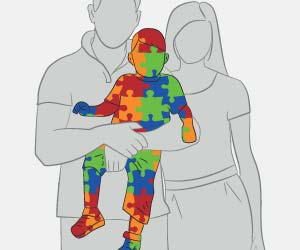As we get older, we become kinder and are satisfied with life due to the release of oxytocin from the brain.
- The neurochemical oxytocin makes you to be kinder and caring as you get older
- Release of oxytocin increases with age and is also positively associated with life satisfaction
- More oxytocin makes you more generous to charity and improves your helping behaviors as well
“The findings of our study are consistent with many religions and philosophies, where satisfaction with one's life is enhanced by helping others,” reported first author Dr Paul J Zak of Claremont Graduate University.
“Participants in our study who released the most oxytocin were more generous to charity when given the opportunity and performed many other helping behaviors. The change in oxytocin was also positively related to participants' empathy, religious participation, and gratitude.”
Oxytocin
Oxytocin is a neurochemical widely known for its role in social attachment, interpersonal trust, and generosity. Zak and his colleagues wanted to understand if the release of oxytocin changed with age, as is found with some other neurochemicals that influence feelings and behaviors.“We have previously shown a link between how kind and generous people are, known as prosocial behaviors, and the release of oxytocin,” said Zak. “Seniors spend more time volunteering and donate a larger proportion of their income to charity than do younger people, so we wanted to see if there was a neurochemical basis for these behaviors.”
“Participants had the option to donate some of their earnings from the study to a childhood cancer charity, and this was used to measure their immediate prosocial behavior. We also collected data on their emotional states, to provide information on their overall satisfaction with life,” explained Zak.
Be kind, love life
“People who released the most oxytocin in the experiment were not only more generous to charity, but also performed many other helping behaviors. This is the first time a distinct change in oxytocin has been related to past prosocial behaviors,” reported Zak.“We also found that the release of oxytocin increased with age and was positively associated with life satisfaction.”
The finding that helping behaviors improve the quality of life is consistent with many faith traditions and philosophies. Serving others appears to prime the brain to release more oxytocin in a positive feedback loop of increased empathy and gratitude.
Zak would like to repeat this study in a more ethnically and geographically diverse sample of people to see if the findings hold for different cultures.
“We would also like to conduct a longer-term measurement of neurophysiology using noninvasive wearable technologies to see what specific activities raise people's satisfaction with life,” he concluded.
Source-Eurekalert














